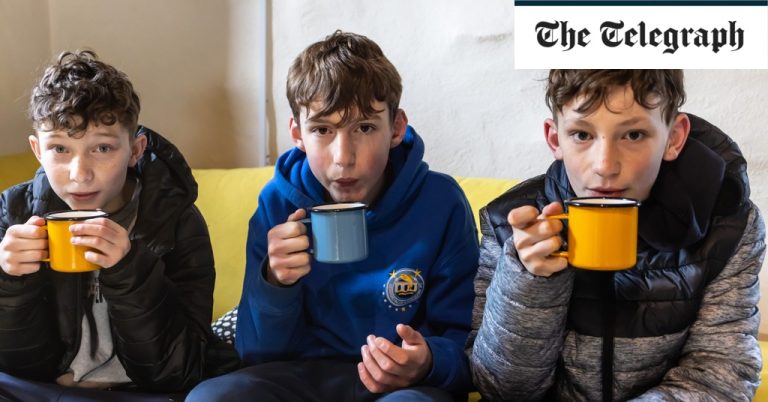It can be a challenge, says Pursall, to discourage this kind of behaviour. “Obviously empathy is a positive trait, but you want to encourage some selfishness so they enjoy themselves,” she says. “Often it takes a bit of time and some extra reassurance.”
Even so, once the young carers are given an opportunity to mix, they often really benefit from meeting other children in the same position. “Being able to share their own experiences makes them realise they’re not alone,” Pursall explains. “They tell us that it gives them some hope for the future because they see each other as kids, rather than carers, and that their caring role doesn’t have to define them.”
Gradually Ollie began to come out of his shell. A waterpark visit was a particular highlight, with Ollie spending the entire time laughing with his new friends as they splashed Pursall and the other break leaders. That night he spent a bit of time with an adult reflecting on his experiences and how the break had changed his attitude, allowing him to rest up away from his hectic homelife, but also to see himself as a person outside his caring responsibilities.
“Ollie’s experience shows the benefits these breaks can have,” says Pursall. “Knowing they have this place where they will be safe, looked after, and can let go of their anxieties about their relatives at home and just have fun is absolutely vital for children of his age.”
While social workers have become much more enlightened about the issues facing young carers in recent years, thinks Peacock, there are still immense challenges in helping them.
“Parents often struggle to ask for help,” she explains. “They’re worried that if they ask for help that they’ll get heavy-handed interference and somebody might say that they’re not good enough to be a parent. That makes them terribly anxious. And it isn’t the case at all.
“The reality is that the cost-of-living crisis and cut-backs in the availability of care staff mean that professional care is increasingly out of the reach of parents who need it, which pushes more children into caring positions,” Peacock continues.
“Poverty is an issue for a lot of children with caring responsibilities because their families can’t work so they can’t afford professional support. These are the children for whom a break is most needed, but for whom it is most unaffordable. That’s why support from generous donors is so vital to allow Go Beyond to keep doing what it does for these children.”
*Name changed to protect his identity
Go Beyond is one of four charities supported by this year’s Telegraph Christmas Charity Appeal. The others are the RAF Benevolent Fund, Marie Curie and Race Against Dementia. To make a donation, please visit telegraph.co.uk/2023appeal or call 0151 284 1927
